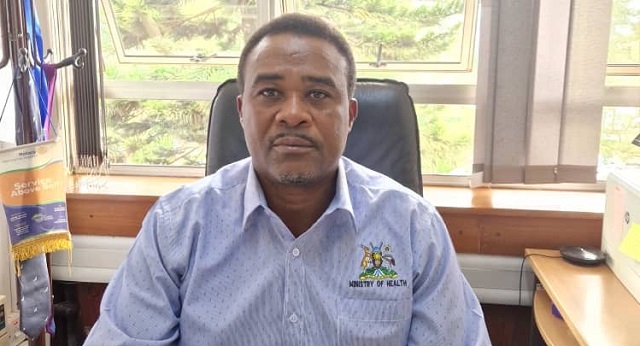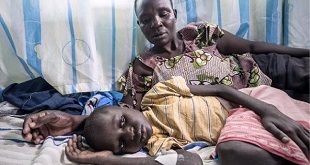
Kampala, Uganda | PATRICIA AKANKWATSA | When COVID-19 broke, the world was caught unprepared despite decades of warnings of the threat of global pandemics and years of international planning. The failure to adequately fund and execute these plans has exacted a heavy human and economic price. Uganda has been battling Ebola Sudan. Although it has been managed, there is more that can be done to manage pandemic and epidemic preparedness. Patricia Akankwatsa of The Independent spoke to Dr Allan Muruta; the commissioner in charge of Epidemiology Surveillance and Public Health Emergencies at the Ministry of Health about this.
When we talk about preparedness, what do we mean exactly?
In technical terms, we have a strategy as a ministry to first of all prevent, then quickly detect and respond to any outbreak. Under prevention, there are those epidemics that are predictable and we have what we call the epidemic calendar when we expect different outbreaks, and therefore we put preparedness measures. For example, for Cholera, we have a calendar for it, and we mostly know when and where it occurs. We have the hotspots, so we educate and sensitise people in those areas on how to prevent it. Secondly, we do vaccinations in those areas. This is all preparedness.
However, there are those pandemics and epidemics that are not predictable like COVID-19 and Ebola, we don’t have a calendar for them and they can break out at any time. These depend on a surveillance system to make sure that if there is an outbreak, you get to know it as quickly as possible. As part of preparedness, we have invested in surveillance where we get weekly reports, monthly reports on different diseases.
How can Uganda strengthen its public health institutions’ capacities, and partnerships to detect and respond quickly and effectively to disease threats based on science, evidence-based policy, and data-driven interventions and programs?
We already have surveillance at different levels. Up to the village level. The gap that we are experiencing is an implementation of surveillance at the community level, the so-called community-based surveillance because this is a structure that is not facilitated by us in terms of remuneration. It is a voluntary structure. And it has its disadvantages. People do things the way they want and when they want. For example, we would want the village health teams to give reports in their catchment areas but this is not being done because these are not controlled by us, not the district, not the sub-county. But we are developing a model where this will be non-voluntary. And then we have these diseases that come from animals; zoonotic diseases. Our surveillance is supposed to go beyond humans. But the surveillance system on the side of MAAIF is not as elaborate as ours where they also have to report. They have data centres where we can get information but the exchange of information is not streamlined, we are currently working on it. It is not just MAAIF, we call it one health. In one health, you get coordinated, and you share information with Uganda Wildlife Authority, water and environment, MAAIF and the ministry of health. Sharing health data so that it can be analysed.
Vaccination is considered to be the best way of prevention, yet Ebola has been controlled when the vaccines are not yet ready. Won’t this be a problem?
The process of getting vaccines was very long. Just shipping the vaccines from the manufacturers is long. But they are putting protocols together that will allow the vaccines to be used safely. But all we wanted was to control and through our measures, we prevented it. The vaccines would have been an added advantage. So, we are waiting for the vaccines to be approved and then we can start vaccination.
Why is it hard for Africa to manufacture its vaccines?
We don’t have what it takes. We may have the brains but we don’t have the financial muscle. It is as simple as that. We are better off where we are but like in cases like where delayed getting the COVID-19 vaccine, we could have put money together as African countries but most African countries are too poor to invest in vaccines. And vaccines don’t make a profit. That is why you can’t find them in commercial places. It is only the Ministry of Health which has the ethical drive to give vaccines free of charge or at a nominal fee that doesn’t make a profit.
The previous Ebola outbreak came at a time when we were still in a pandemic, how challenging was that?
There were several challenges but the most important one was funding; stakeholders delayed to commit funding for particular activities. Even the flow of funds was too slow. In an outbreak, it is an evolving situation. When something comes up, you want it funded and money is not there because the partners’ money is tied up with other priorities that are pre-planned. Funds are the whole driver of this whole thing.
What are some of the lessons you learnt from the previous Ebola outbreak?
One of the things we learnt is that effective coordination is very important. We harnessed the resources from the partners much more effectively to respond. We brought the partners together, planned together and then asked them what and which were they going to support.
In case management, we learnt that timely supportive care had a more positive outcome. We had around 87 survivors and 55 deaths. Most of those who survived had reported early.
Then we also realised that it was wise to invest in surveillance because we were able to detect and track contacts. This department was created in 2019.
Do you think we are prepared for a COVID-19 resurgence?
Yes, we are. It has been around since 2020 and we have been preparing. We have the vaccines in place, we have the treatment centres, ICUs and all other equipment. And of course, our surveillance system. But most importantly, we want people to get vaccinated.
*****
 The Independent Uganda: You get the Truth we Pay the Price
The Independent Uganda: You get the Truth we Pay the Price


